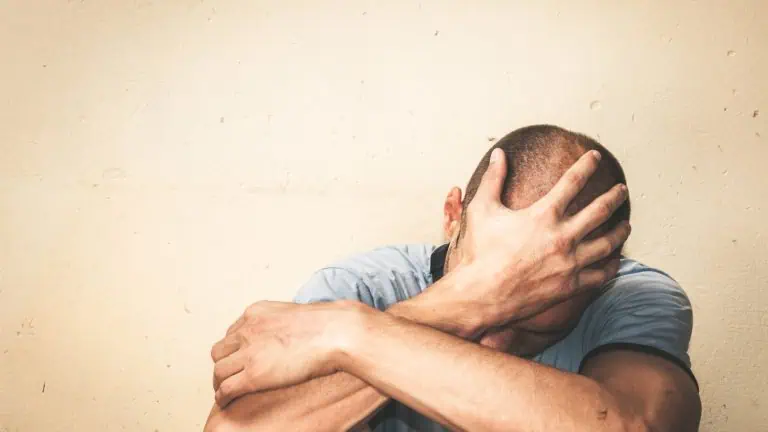
Depression can make getting out of bed feel nearly impossible, while addiction can make you feel like you’ve lost control of your own choices. When the two show up together, it can feel like life has closed in from every angle.
Maybe you’ve found yourself drinking to take the edge off sadness, only to wake up the next morning feeling lower than before. Or maybe as your substance use has progressed, you now notice your joy for life and general motivation have quietly slipped away.
However it looks, depression and addiction often go hand in hand.
This is sometimes referred to as a concurrent disorder or dual diagnosis. The label doesn’t matter as much as the truth behind it: both conditions can feed off each other, and both need care. The good news? With the right support, recovery is possible.
Why they often happen together
Depression isn’t just “feeling down.” It’s a medical condition that shapes your mood, energy, and even your ability to think clearly. Addiction, in its own way, also changes the brain — pulling you back again and again toward substances, even when part of you desperately wants to stop. It makes sense that the two overlap so often.
For many people, substances become a way to cope with feelings that are just too heavy to handle. Alcohol can feel like it softens the pain, while drugs can provide a false sense of relief or escape. But the relief doesn’t last, and the lows that follow are usually worse than anything you felt initially.
There are also shared risk factors. Trauma, ongoing stress, and family history can all set the stage for both depression and addiction. And once both are present, they tend to get tangled up together. Depression makes substances more tempting while substance use makes depression more severe. It can easily become a vicious cycle.
That’s why it’s less important to ask which came first and more important to notice how closely they’re linked.
We’re here to help.
Contact us today for a no-obligation conversation with one of our professionals.
The cycle of depression and addiction
Here’s how the loop often looks:
A person struggling with depression reaches for a drink, a pill, or something stronger. For a short while, the feelings lift. Life seems doable again. But once the effect fades, mood sinks lower. Anxiety rises, sleep gets disrupted, and the urge to use again gets stronger and stronger.
On the other side, regular substance use can slowly trigger depression. Substances alter the way the brain handles dopamine and serotonin — the chemicals tied to motivation, energy, and pleasure.
Over time, the brain produces less of these naturally. Life begins to feel flat, hopeless, or devoid of meaning. And the guilt, conflict, or secrecy that often comes with addiction deepens that despair.
It’s a cycle that can feel endless. But it isn’t. With the proper treatment, both conditions can be addressed together — and that’s how the loop finally breaks.
Signs you might be facing both addiction and depression

Because depression and addiction share so many features, it can be hard to tell when both are present.
You might notice:
- Persistent sadness, emptiness, or loss of interest in things you once enjoyed.
- A growing need for more of a substance to feel the same effect.
- Difficulty sleeping, eating, or concentrating.
- Promises to yourself that you’ll cut back… that don’t quite stick.
- Pulling away from people, hiding your use, or feeling guilty about it.
Maybe you recognise all of these, or maybe just a few. Either way, struggling doesn’t mean you’re weak; it just means you’re human. And it means you’d benefit from help that looks at the whole picture, not just one part.
Why treating both matters
Trying to treat only one condition is a bit like fixing half a leaking roof. For a while, things might seem okay. But before long, the water finds its way back in.
Someone who goes to rehab but doesn’t address their depression might feel fine while in treatment, only to relapse when those dark moods return. Someone who starts medication for depression but keeps drinking heavily may find the pills don’t seem to help.
Research — and lived experience — show that the best outcomes come when both depression and addiction are treated together. That’s what “integrated care” really means: not two separate treatments running in parallel, but one plan that understands and treats the whole person.
What treatment can look like
No two people are the same, and recovery should reflect that. But there are some approaches that consistently help when depression and addiction occur together:
Therapy that tackles both. Approaches like Cognitive Behavioural Therapy (CBT) and Dialectical Behaviour Therapy (DBT) are proven to help people change patterns of thinking, regulate emotions, and find healthier ways to cope. When trauma is part of the story (and it often is), trauma-focused therapy can be a turning point.
Medication when appropriate. For some clients, antidepressants or mood stabilisers play a vital role in easing the symptoms of depression. This can make therapy more effective, as it provides people with the stability they need to focus on their recovery.
Support beyond talking. Healing is so much more than cognitive. Mindfulness, meditation, and yoga help clients reconnect with their bodies, while group therapy provides that gentle push to connect and be a part of a community. Dedicated family therapy support helps repair strained relationships and creates a stronger safety net for recovery aftercare.
Ongoing care. Many clients think that once they leave recovery, the work is over. But recovery doesn’t stop after treatment. In some ways, the journey has just begun. Aftercare plans, such as continued counselling, relapse prevention strategies, or support groups, are essential to ensure that the progress made in treatment turns into long-term change.
How Centres for Health and Healing Toronto can help

We’ve seen how painful the mix of depression and addiction can be, but we’ve also witnessed how much hope there is on the other side.
Our specialized team creates individualized treatment plans for all clients covering everything from their family history to their challenges, triggers, dreams and goals. In order to treat the whole person, not just the symptoms, we blend proven clinical therapies with innovative holistic practices.
A stay with us might include one-on-one counselling, group therapy, mindfulness practices, and family support. It also includes careful aftercare planning, because we know the transition back to everyday life is just as important as the treatment itself.
Our centre, located in Toronto, Ontario, is fully accredited by Agrément Canada, verified by Psychology Today, recognised by the Better Business Bureau (BBB), and is a proud member of the National Association of Addiction Treatment Providers.
Recovery is possible
At Centres for Health and Healing Toronto, we truly understand the heavy feeling of living with both addiction and depression. It can feel like you can’t move forward, and the struggle is never-ending. But you can move ahead, no matter how great the challenge.
And you don’t have to do it alone.
Both conditions are treatable. And with the right team and support, you can recover and get your life back.
We’ve witnessed countless clients who entered our centre feeling hopeless and left with a sense of hope for the new life ahead of them.
If you or someone you care about is struggling, please reach out and learn more about how we can help.





